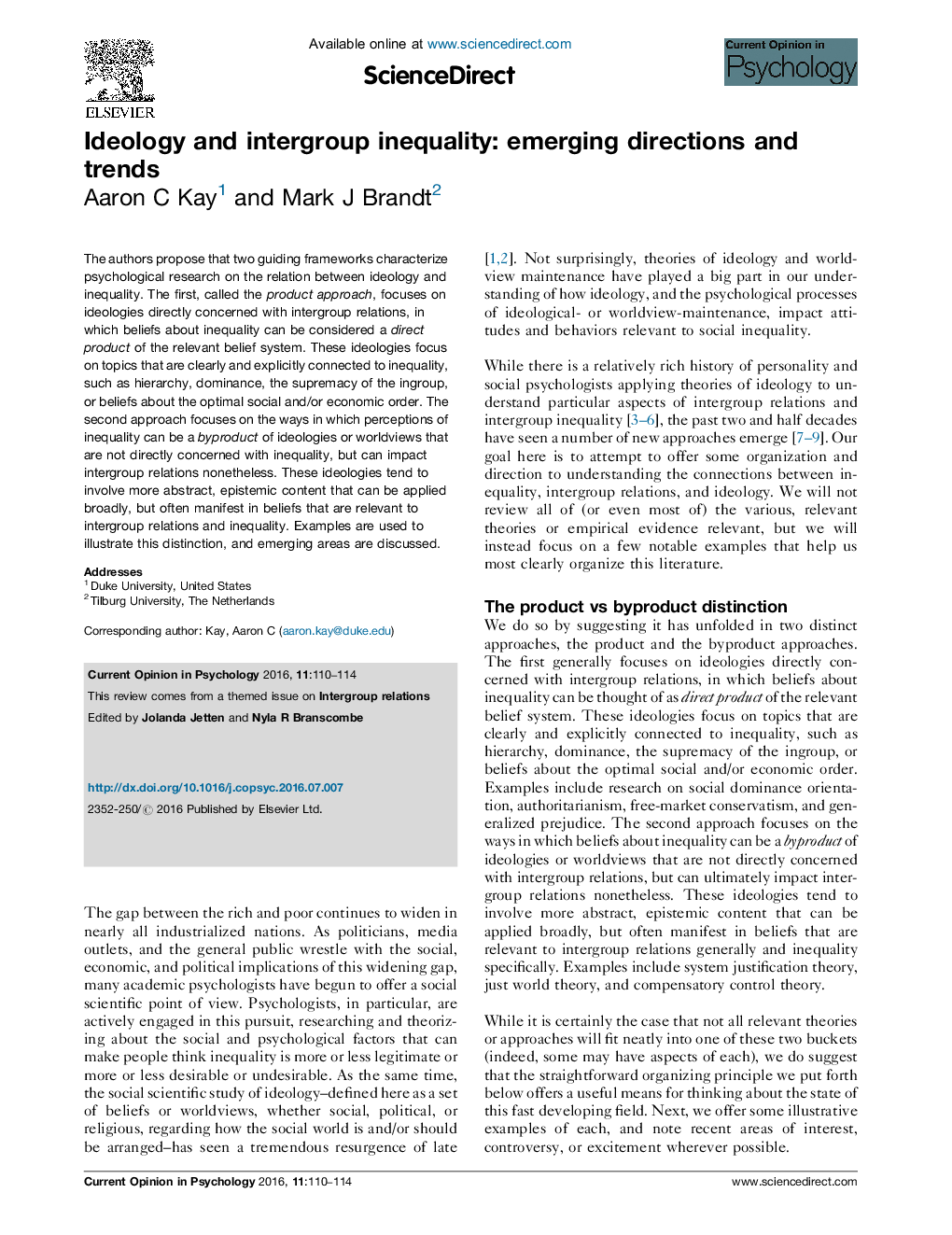| Article ID | Journal | Published Year | Pages | File Type |
|---|---|---|---|---|
| 879254 | Current Opinion in Psychology | 2016 | 5 Pages |
•The social scientific study of social and economic inequality is growing.•Psychologists have focused on underlying ideological processes.•We organize this research into two strands, and offer illustrative examples of each.•One strand focuses on ideologies that are explicitly about intergroup relations.•Another strand focuses on ideologies that are not about intergroup relations but influence beliefs relevant to social inequality.
The authors propose that two guiding frameworks characterize psychological research on the relation between ideology and inequality. The first, called the product approach, focuses on ideologies directly concerned with intergroup relations, in which beliefs about inequality can be considered a direct product of the relevant belief system. These ideologies focus on topics that are clearly and explicitly connected to inequality, such as hierarchy, dominance, the supremacy of the ingroup, or beliefs about the optimal social and/or economic order. The second approach focuses on the ways in which perceptions of inequality can be a byproduct of ideologies or worldviews that are not directly concerned with inequality, but can impact intergroup relations nonetheless. These ideologies tend to involve more abstract, epistemic content that can be applied broadly, but often manifest in beliefs that are relevant to intergroup relations and inequality. Examples are used to illustrate this distinction, and emerging areas are discussed.
